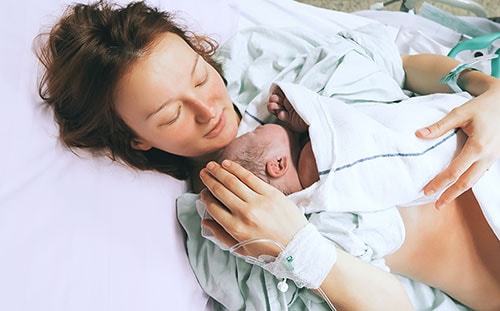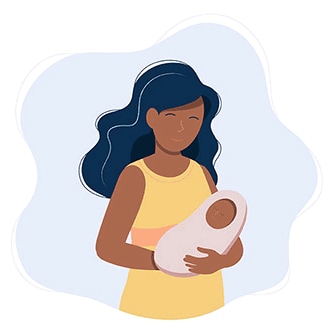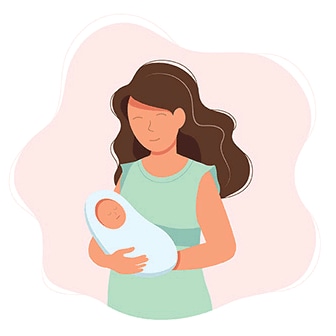Preventing Group B Strep Disease in Newborns

The two best ways to prevent group B strep (GBS) disease during the first week of a newborn’s life are:
- Testing pregnant women for GBS bacteria
- Giving antibiotics, during labor, to women at increased risk
Unfortunately, experts have not identified effective ways to prevent GBS disease in people older than one week old.
On This Page
Testing Pregnant Women

Most babies born to women who tested positive for GBS bacteria do not need treatment if their mother received antibiotics during labor.
The American College of Obstetricians and Gynecologists (ACOG) and American College of Nurse-Midwives (ACNM) recommend women get tested for GBS bacteria when they are 36 through 37 weeks pregnant. The test is simple and does not hurt. Doctors use a sterile swab (“Q-tip”) to collect a sample from the vagina and the rectum. They send the sample to a laboratory for testing.
Women who test positive for GBS are not sick. However, they are at increased risk for passing the bacteria to their babies during birth.
GBS bacteria come and go naturally in people’s bodies. A woman may test positive for the bacteria at some times and not others. That is why doctors test women late in their pregnancy, close to the time of delivery.
Antibiotics during Labor
Doctors give antibiotics to women who are at increased risk of having a baby who will develop GBS disease. The antibiotics help protect babies from infection, but only if given during labor. Doctors cannot give antibiotics before labor begins because the bacteria can grow back quickly.
Doctors give the antibiotic by IV (through the vein). Doctors most commonly prescribe a type of antibiotic called beta-lactams, which includes penicillin and ampicillin. However, doctors can also give other antibiotics to women who are severely allergic to these antibiotics. Antibiotics are very safe. For example, about 1 in 10 women have mild side effects from receiving penicillin. There is a rare chance (about 1 in 10,000 women) of having a severe allergic reaction that requires emergency treatment.
Antibiotics are very effective at preventing GBS disease in newborns. Consider the following examples:

Tanya
Her baby has a 1 in 4,000 chance of developing GBS disease.

Emma
Her baby has a 1 in 200 chance of developing GBS disease.
Emma’s baby is 20 times more likely to get GBS disease compared to Tanya’s baby.
Vaccination
Currently, there is no vaccine to help pregnant women protect their newborns from GBS bacteria and disease. Researchers are working on developing a vaccine, which may become available in the future.
Strategies Proven Not to Work
The following strategies are not effective at preventing GBS disease in babies:
- Taking antibiotics by mouth
- Taking antibiotics before labor begins
- Using birth canal washes with the disinfectant chlorhexidine
Related Pages
- Group B strep and pregnancyAmerican College of Obstetricians and Gynecologists
- Group B strep in pregnancyAmerican College of Nurse-Midwives





















.png)












No hay comentarios:
Publicar un comentario